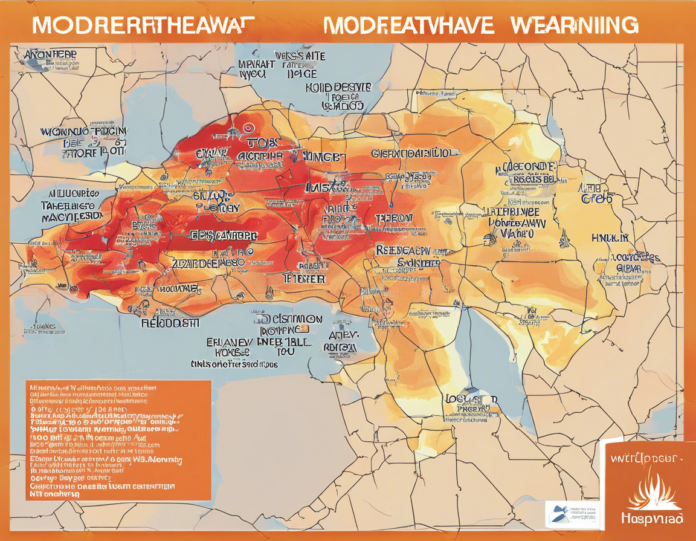As temperatures continue to rise due to climate change, heatwaves have become a more frequent phenomenon around the world. Heatwaves bring extreme heat and can have serious health consequences, especially for vulnerable populations such as the elderly, young children, and individuals with certain medical conditions. It is crucial to be well-prepared and know how to stay safe during a heatwave alert.
Understanding Heatwaves
- Definition: A heatwave is a prolonged period of excessively hot weather, typically with high humidity.
- Causes: Heatwaves can be caused by a combination of factors, including high pressure systems, urban heat islands, and climate change.
- Impacts: Heatwaves can lead to heat-related illnesses such as heat exhaustion, heatstroke, and dehydration.
Tips for Staying Safe During a Heatwave
- Stay Hydrated: Drink plenty of water throughout the day to stay hydrated and cool.
- Stay Indoors: If possible, stay indoors in air-conditioned spaces during the hottest parts of the day.
- Wear Appropriate Clothing: Wear lightweight, light-colored, and loose-fitting clothing to help your body regulate its temperature.
- Use Fans or Air Conditioners: Use fans or air conditioners to circulate air and cool down indoor spaces.
- Avoid Strenuous Activities: Avoid outdoor activities or exercise during the hottest times of the day.
- Check on Vulnerable Individuals: Keep an eye on elderly family members, young children, and individuals with medical conditions who may be more sensitive to heat.
- Take Cool Showers or Baths: Taking cool showers or baths can help lower your body temperature.
- Use Cooling Products: Use cooling products such as ice packs or cooling towels to help stay cool.
- Close Blinds or Curtains: Keep blinds or curtains closed during the hottest part of the day to block out sunlight and heat.
- Monitor Local Alerts: Stay informed about heatwave alerts and follow any recommendations or guidelines from local authorities.
Signs of Heat-Related Illnesses
- Heat Exhaustion: Symptoms include heavy sweating, weakness, dizziness, nausea, and rapid heartbeat.
- Heatstroke: A more severe condition that can include a high body temperature, confusion, agitation, seizures, and loss of consciousness.
Frequently Asked Questions (FAQs)
-
What is a heatwave alert?
A heatwave alert is issued by meteorological authorities when temperatures are expected to reach dangerous levels within a specific region, posing a risk to public health and safety. -
How can I prepare for a heatwave?
You can prepare for a heatwave by staying informed about weather forecasts, ensuring you have access to cool spaces or air conditioning, stocking up on water and hydrating beverages, and creating a plan to check on vulnerable individuals. -
What should I do if someone is experiencing heat exhaustion or heatstroke?
If someone is showing signs of heat exhaustion or heatstroke, move them to a cooler place, have them rest, give them water to drink, and seek medical attention immediately, especially in the case of heatstroke. -
Are certain populations more vulnerable to heatwaves?
Yes, certain populations are more vulnerable to heatwaves, including the elderly, young children, individuals with chronic medical conditions, and those who work or exercise outdoors. -
How can I help pets stay safe during a heatwave?
Make sure your pets have access to shade, water, and a cool place to rest indoors. Never leave pets in a hot car, and be mindful of hot pavement that can burn their paws.
In conclusion, staying safe during a heatwave alert requires proactive measures such as staying hydrated, staying cool indoors, recognizing signs of heat-related illnesses, and taking care of vulnerable individuals and pets. By following these tips and staying informed, you can protect yourself and others from the dangers of extreme heat. Stay safe and cool during heatwave alerts!












